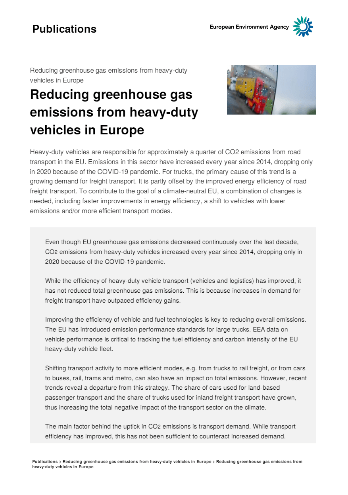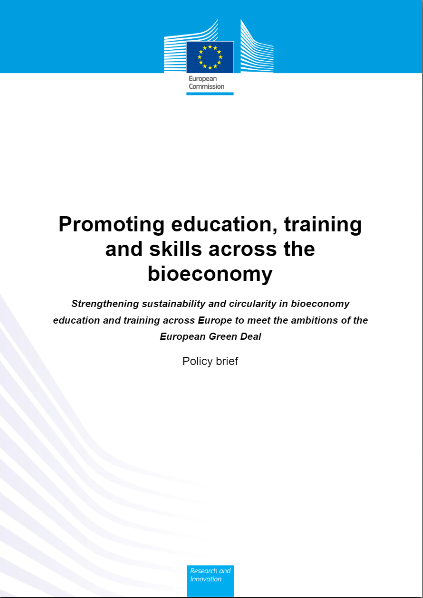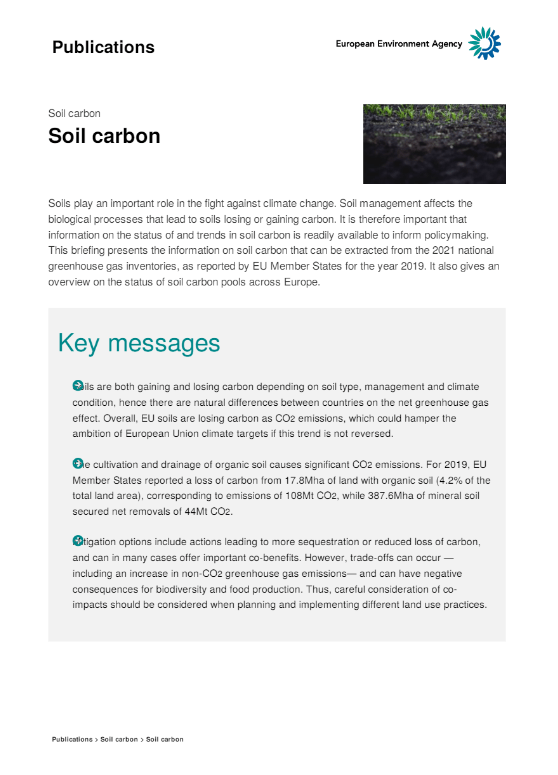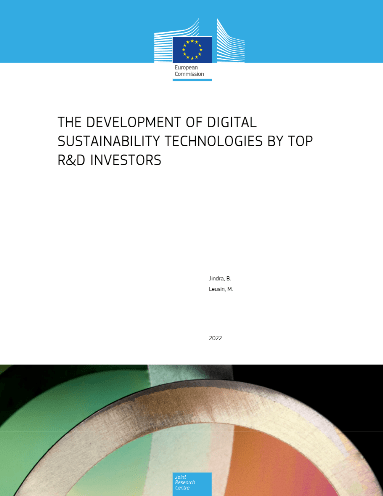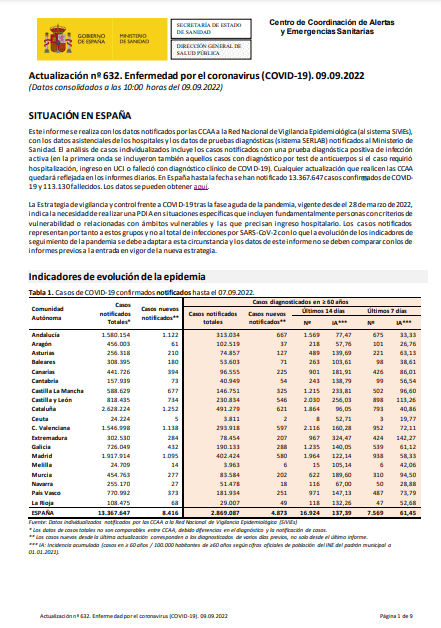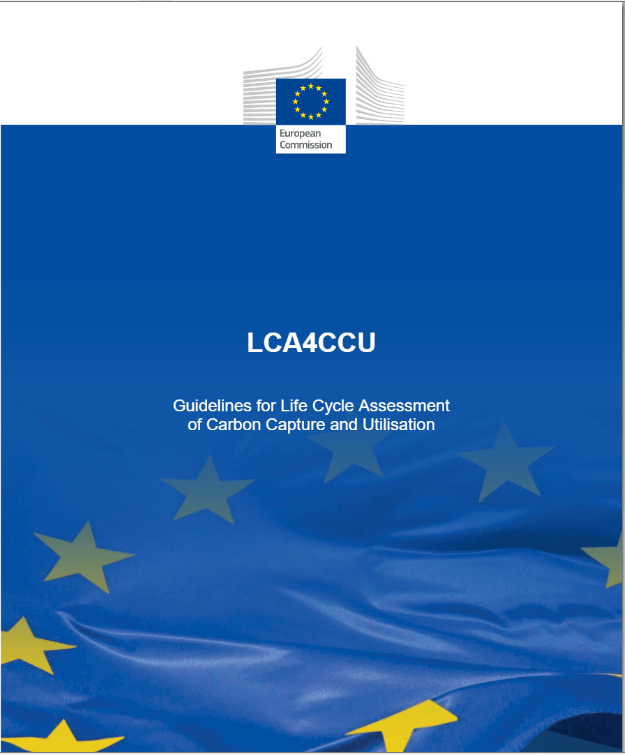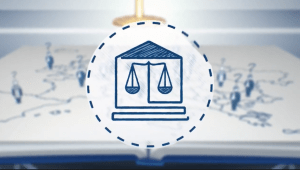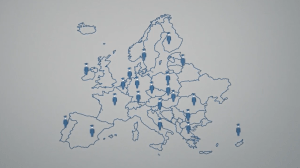
CDE Almería - Centro de Documentación Europea - Universidad de Almería
Centro de Documentación Europea de la Universidad de Almería
Derecho
Legislación, Jurisprudencia, Tratados y Sumarios de Legislación sobre las principales áreas de la política comunitaria. Contiene también las últimas noticias, mediateca y boletines relacionados con la materia.
Estás aquí: Fondo Digital CDE > Derecho

Los vehículos pesados son responsables de aproximadamente una cuarta parte de las emisiones de CO2 del transporte por carretera en la UE. Las emisiones de este sector han aumentado cada año desde 2014, y solo han disminuido en 2020 debido a la pandemia de COVID-19. En el caso de los camiones, la causa principal de esta tendencia es la creciente demanda de transporte de mercancías. Se compensa en parte por la mejora de la eficiencia energética del transporte de mercancías por carretera. Para contribuir al objetivo de una UE climáticamente neutra, se necesita una combinación de cambios, incluyendo mejoras más rápidas en la eficiencia energética, un cambio a vehículos con menos emisiones y/o modos de transporte más eficientes.
[Leer Más]La bioeconomía, como catalizador del cambio sistémico, aborda los aspectos económicos, sociales y medioambientales del Pacto Verde Europeo, buscando nuevas formas de producir y consumir recursos respetando los límites de nuestro planeta y alejándose de una economía lineal basada en el uso extensivo de recursos fósiles y minerales.
[Leer Más]Los suelos desempeñan un papel importante en la lucha contra el cambio climático. La gestión del suelo afecta a los procesos biológicos que hacen que los suelos pierdan o ganen carbono. Por lo tanto, es importante que la información sobre el estado y las tendencias del carbono del suelo esté fácilmente disponible para informar la elaboración de políticas. Este informe presenta la información sobre el carbono del suelo que puede extraerse de los inventarios nacionales de gases de efecto invernadero de 2021, según los informes de los Estados miembros de la UE para el año 2019. También ofrece una visión general de la situación de las reservas de carbono del suelo en toda Europa.
[Leer Más]Este informe se centra en las invenciones relacionadas con las tecnologías digitales de sostenibilidad, que se desarrollan en la interfaz de la transición verde y digital.
[Leer Más]Este informe se realiza con los datos notificados por las CCAA a la Red Nacional de Vigilancia Epidemiológica (al sistema SiViEs), con los datos asistenciales de los hospitales y los datos de pruebas diagnósticas (sistema SERLAB) notificados al Ministerio de Sanidad. El análisis de casos individualizados incluye los casos notificados con una prueba diagnóstica positiva de infección activa (en la primera onda se incluyeron también aquellos casos con diagnóstico por test de anticuerpos si el caso requirió hospitalización, ingreso en UCI o falleció con diagnóstico clínico de COVID-19). Cualquier actualización que realicen las CCAA quedará reflejada en los informes diarios. En España hasta la fecha se han notificado 13.367.647casos confirmados de COVID19 y 113.130fallecidos.
[Leer Más]Carbon Capture, Utilisation and Storage (CCUS) is perceived as one of the options available to address the hardest-to-abate emissions from process industries such as iron & steel, cement and chemicals, which are heavily carbon-intensive. CCUS includes storing CO2 in geological formations (for example in a deep saline aquifer) as well as its use in processes for conversion into chemical products, building materials or fuels. The largest benefits of CCUS in literature are mostly from the geological storage (CCS), while the potential benefit of utilisation options (CCU) is still under investigation. In this report, the focus is only on the capture and use of CO2 as raw material in conversion processes, although the guidelines and principles can be applied to CO2 used in other processes. This report aims, within the framework provided by DG Energy, to develop Life Cycle Assessment (LCA) guidelines for Carbon Capture and Utilisation. As a point of departure, CCU is defined in this report as “those technologies that use CO2 as feedstock and convert it into value-added products such as fuels, chemicals or materials”. CCU involves a number of stages, from capturing the CO2 to its conversion into carbon-containing products, further including the use of such products up to their disposal as carbon-containing waste and/or ultimately, CO2 emission, which may happen shortly after the use of the CO2-derived product (e.g., synthetic fuels) to decades (e.g., for polymers) or centuries (e.g., for mineralization products). Many of these stages demand energy, not only directly (in the capture system and the transformation processes) but also indirectly (in the synthesis of co-reactants such as hydrogen). The products will then be used in other chains. Understanding the potential benefits or impacts on the environment, requires that not only the direct impacts from the CCU production facility are considered but also the impacts from provision of feedstock and from use and end of life of products. Furthermore, impacts (or benefits) are not restricted to those of climate change but should also include other environmental aspects (land use, water use, etc.). As a consequence, CCU’s beneficial or negative impacts should be assessed from a system perspective and with regards to how it can provide societal benefits.
[Leer Más]- « Anterior
- 1
- …
- 539
- 540
- 541
- 542
- 543
- …
- 2.961
- Siguiente »
